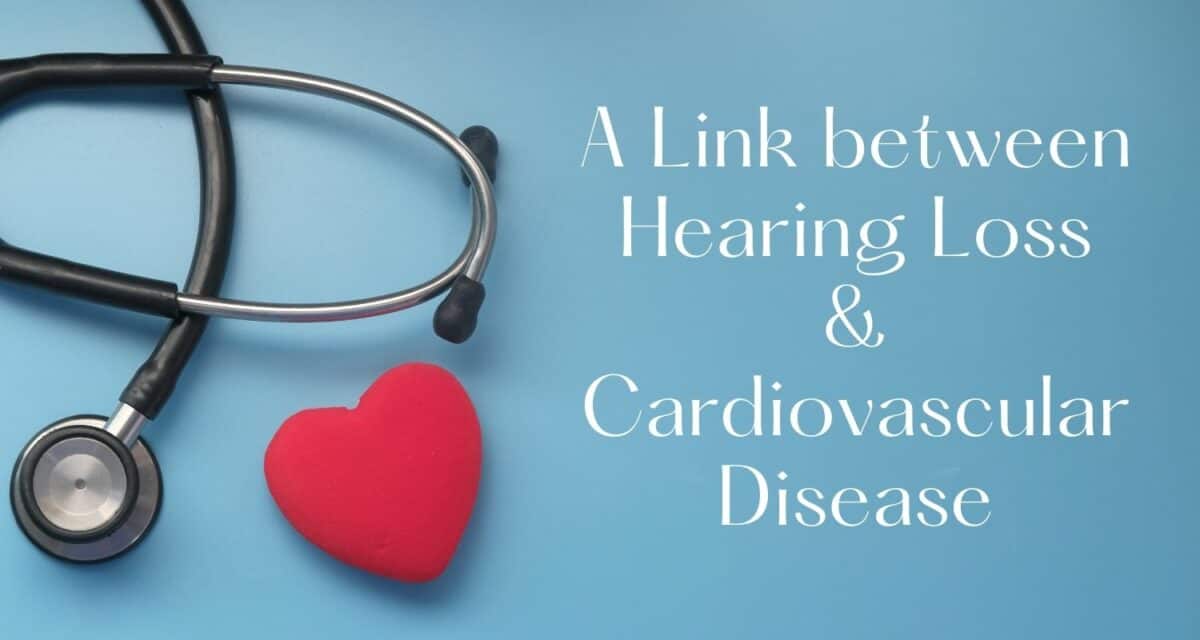The heart is the size of a fist-sized and it one of the most important organs in the entire body. It works as the pump of the circulatory system delivering blood to the brain and every other essential organ in throughout the body. Our body relies on a continuous supply of oxygen and other nutrients to the brain and throughout the body, including the ears.
The Importance of a Healthy Heart
The Centers for Disease Control and Prevention (CDC), reports that Heart disease is the leading cause of death in the United States, ending the life of an individual every 36 seconds. The CDC reports that as of 2021, an estimated 659,000 people in the US die from heart disease each year. This staggering number equals 1 in every 4 deaths! The heart is the driving force behind the circulatory system which provides constant oxygen, nutrients and hormones to muscles, tissues and organs throughout your body as well as disposing waste from cells and organs. When your heart suffers from cardiovascular disease it can affect your muscles, your tissues, cells, digestion, sight and your hearing.
Understanding Cardiovascular Disease
Cardiovascular disease refers to any health issue connected to the heart or blood vessels and most often manifests in acute events as fatty deposits inside arteries creating blockages leading to heart attack, stroke, and blood clots. While it is not completely predictable what causes cardiovascular disease, factors which increase your risk include:
- High blood pressure (hypertension)
- Family history of cardiovascular disease
- High cholesterol
- Diabetes
- Smoking tobacco products
- Inactivity
Sensorineural Hearing Loss
Sensorineural hearing loss is the most common type and occurs when damage is sustained to the tiny cells of the inner ear. A tiny organ called the cochlea contains tiny hair-cells within fluid. When sounds are sent to the inner ear, the vibration moves the liquid, which then moves these cells, called stereocilia. Stereocilia transform the vibrations into electrical pulses which are received by the brain. Sensorineural hearing loss occurs when the stereocilia become damaged, interrupting the signal to the brain. This often occurs gradually in small stages, eliminating certain tones and pitches and eventually making it difficult to hear whole words in sentences, which the brain must then struggle to fill in with limited information.
Sensorineural Hearing Loss and Cardiovascular Disease
There are several causes of sensorineural hearing loss including exposure to loud noise, advanced age, exposure to chemical, medication, or chronic ear infections. Interestingly, many risks of heart disease overlap with risk factors for sensorineural hearing loss. The stereocilia rely on a constant supply of oxygen rich blood and because they are so fragile, a change in blood flow can quickly damage the tiny cells of the inner ear leading to permanent damage. cardiovascular system which is struggling to provide a constant supply of blood can often affect the vestibular and auditory system in the inner ear, leaving individuals with lasting hearing loss.
Studies on the Connection Between Hearing Loss and Heart Disease
A 2018 study from Harvard University cross-referenced health data and identified a significant connection between heart disease and hearing loss. The study published in the Journal of the American College of Cardiology titled “Environmental Noise and the Cardiovascular System” identified that hearing loss was 54 percent more common in those who also had cardiovascular disease. The study also acknowledged that constant exposure to loud noise often found in urban environments in the form of noise pollution can increase cortisol levels. Cortisol is a hormone released when feeling stress. Multiple studies suggest that consistently high levels of cortisol from long-term stress can increase blood cholesterol, triglycerides, blood sugar, and blood pressure which are risk factors for cardiovascular disease.
Managing Hearing Loss and Heart Disease
If you are concerned about your heart health a few modifications can go a long way. Focusing on regular exercise and a healthy diet, quitting smoking and regular health checkups are all ways to make sure your heart can stay healthy. If you suspect that you have hearing loss in connection to your heart health the two can support each other. Schedule an appointment for a hearing exam. We can help you find the best solution for all your hearing needs and help you stay in control of your total health, for years to come.


